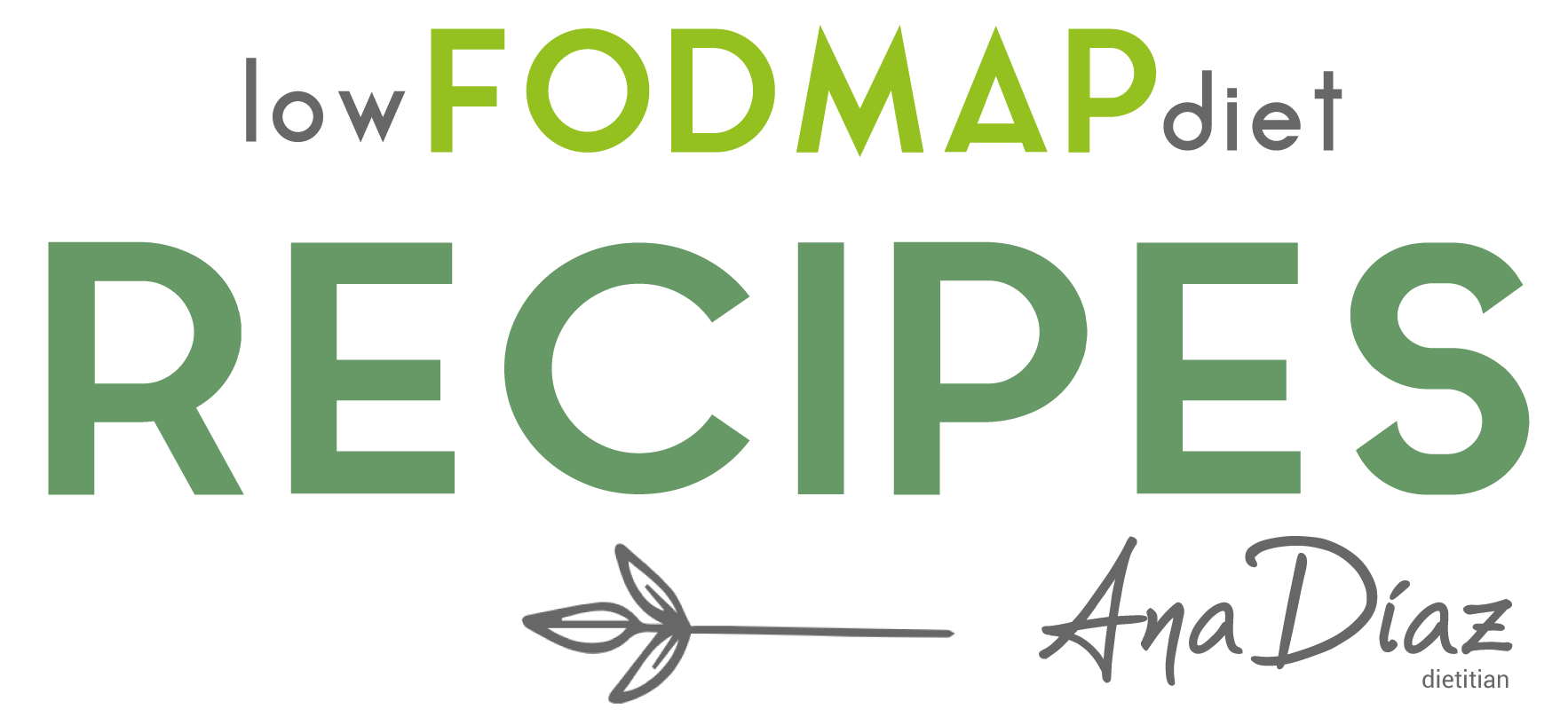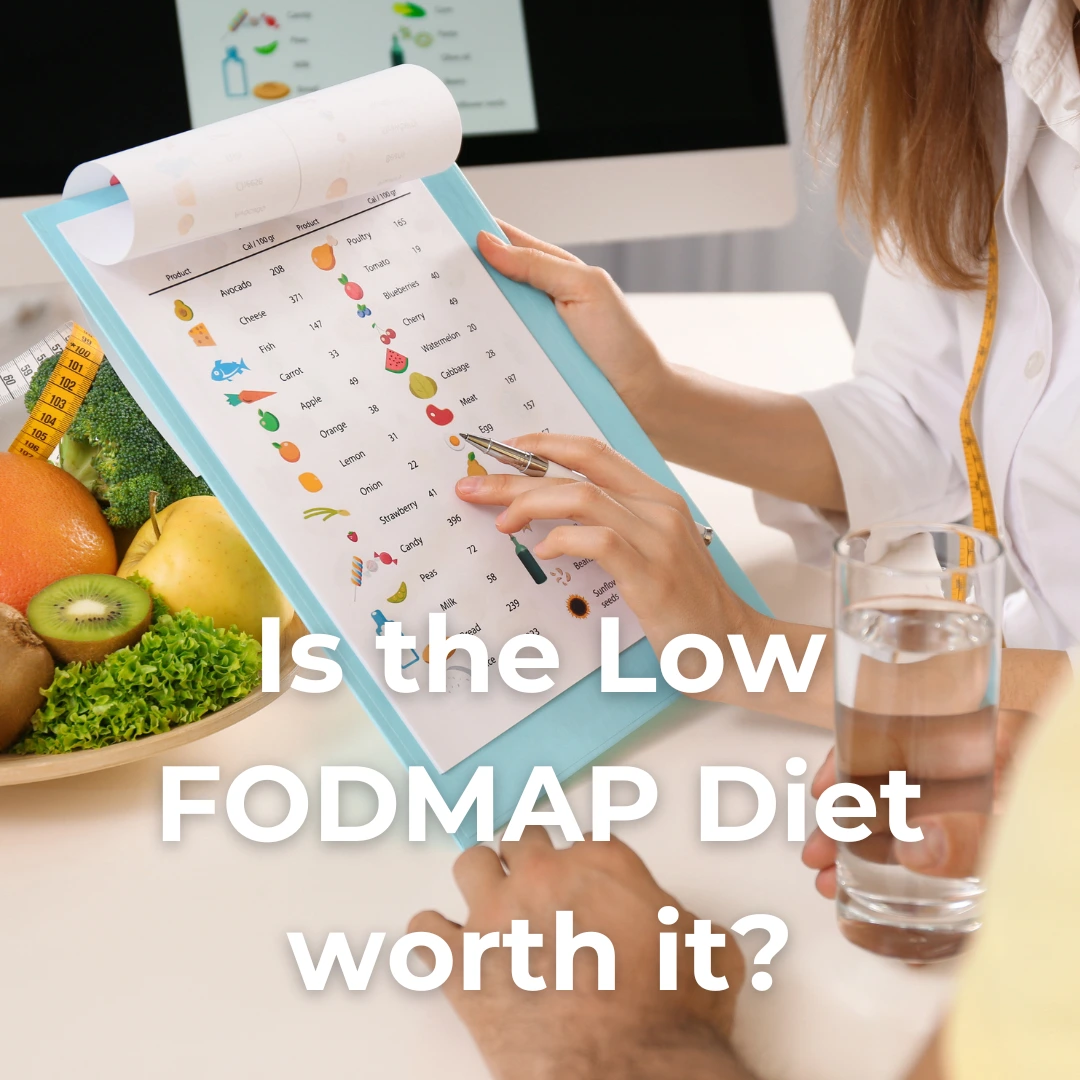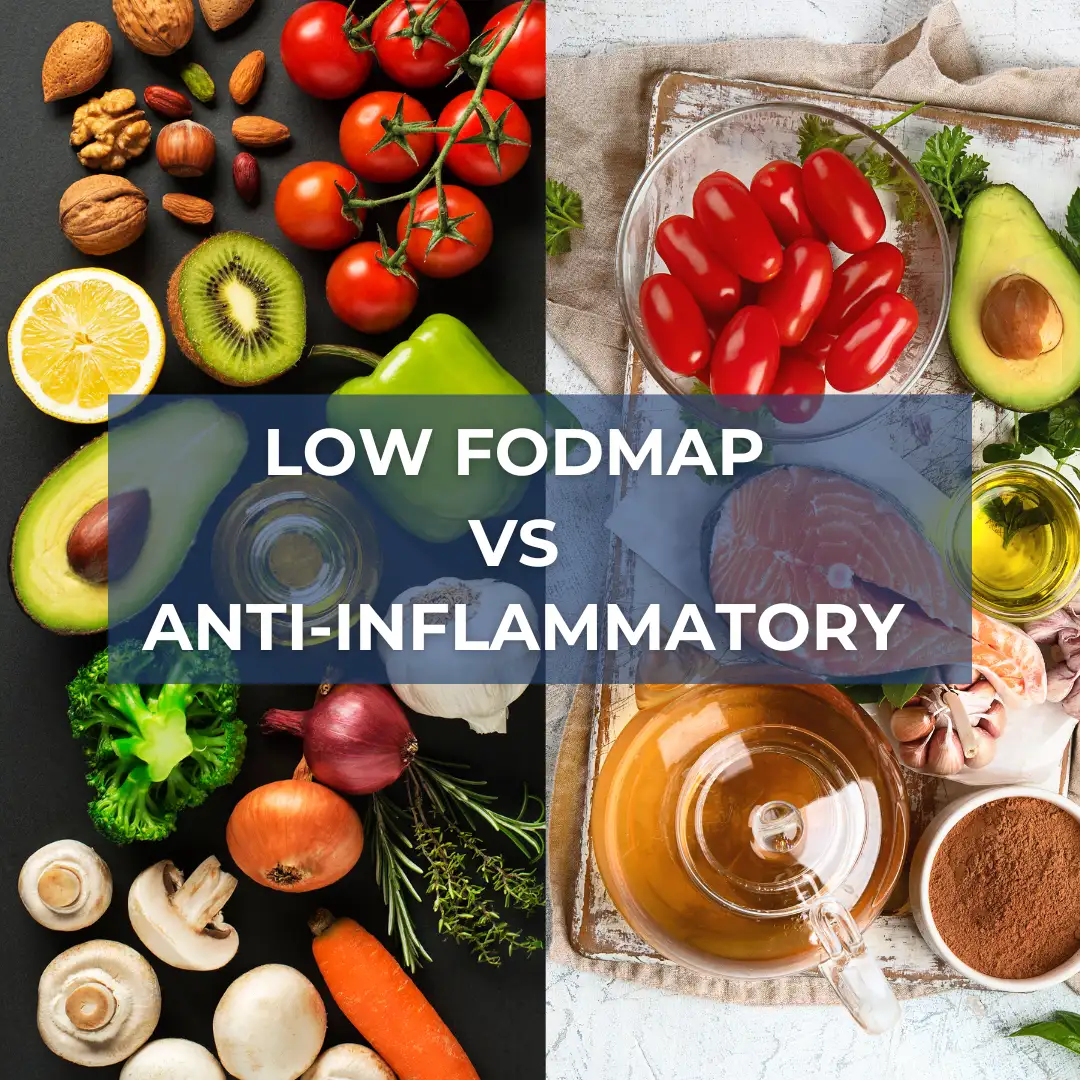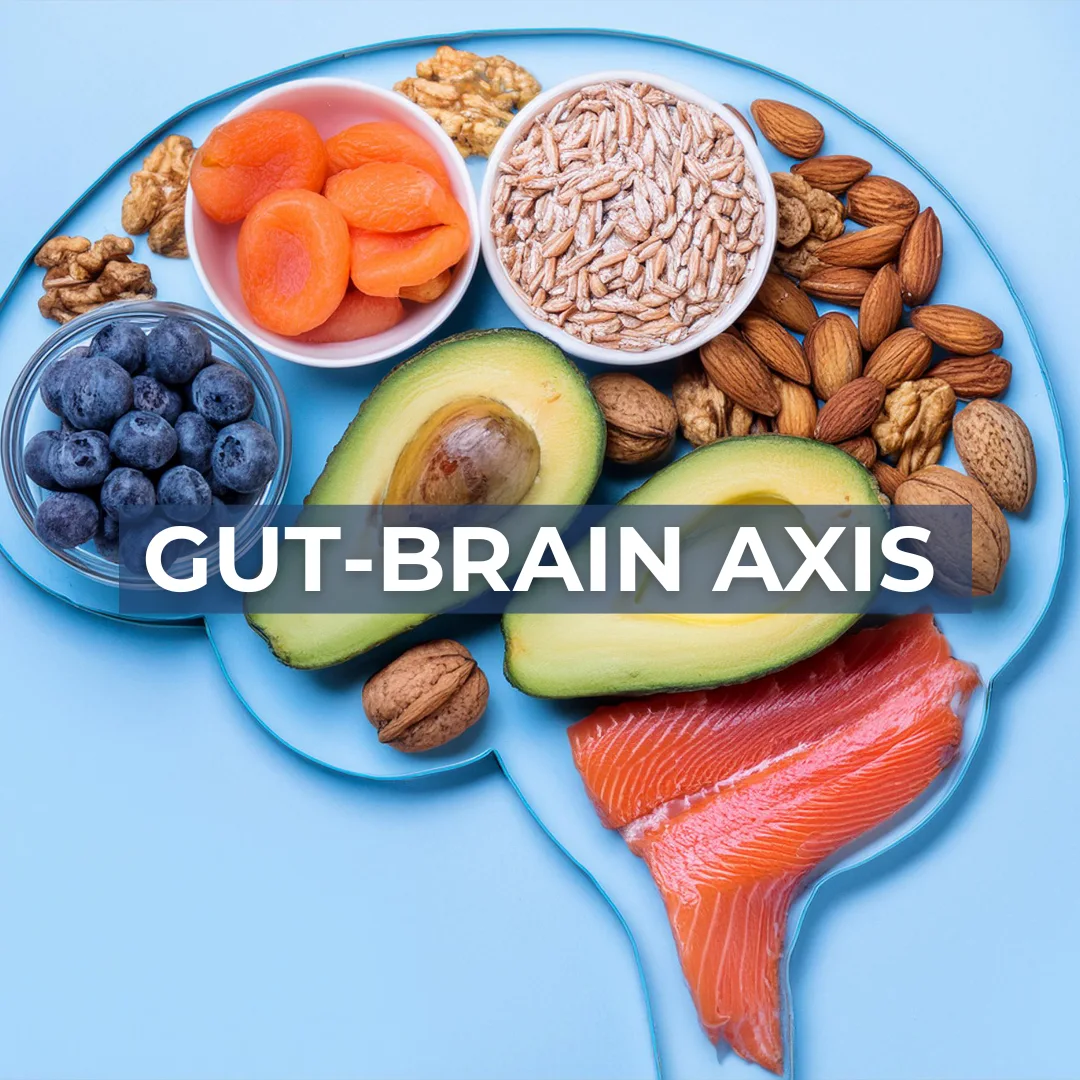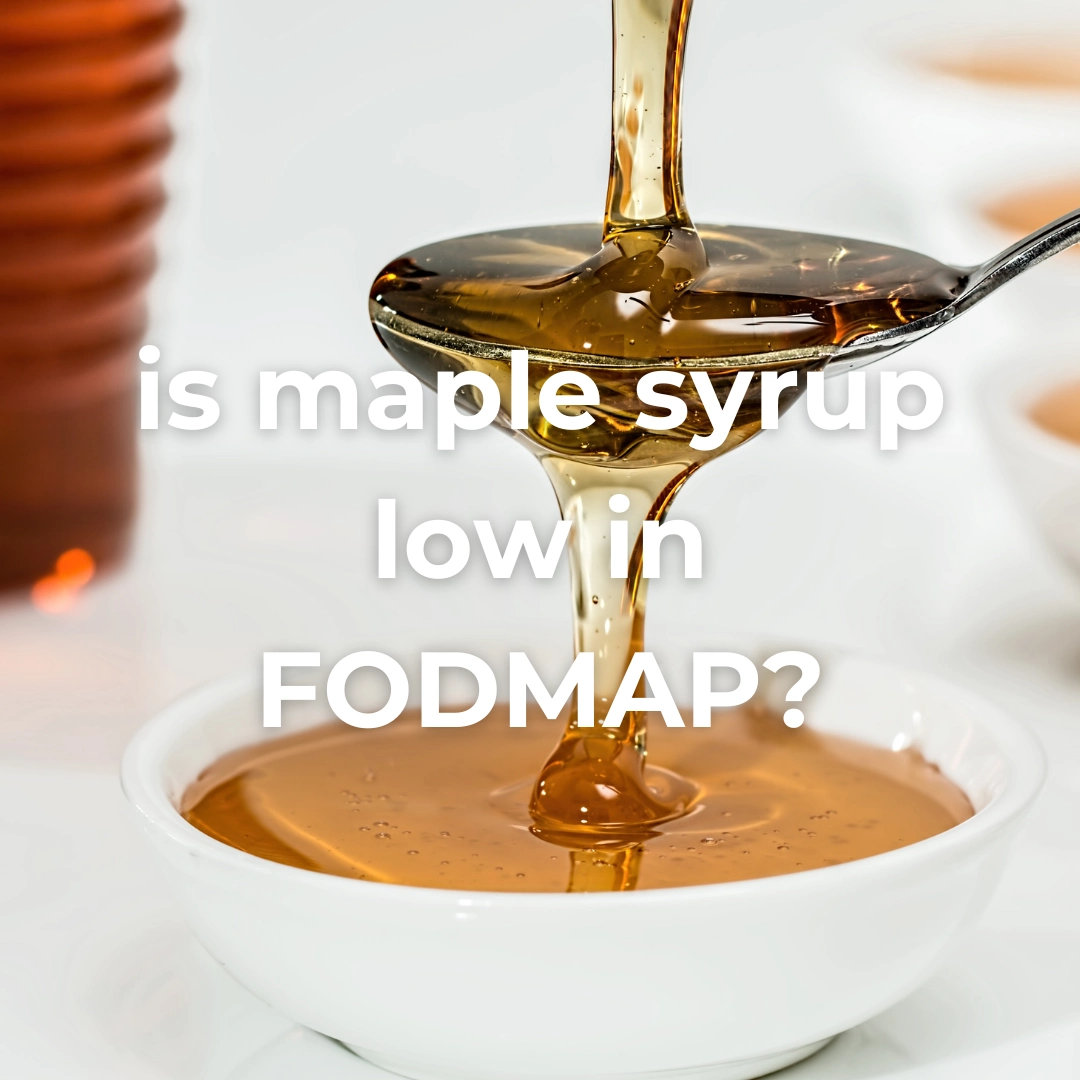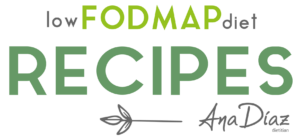Introduction: Should You Try the Low FODMAP Diet?
If you’ve been struggling with bloating, gas, abdominal pain, or unpredictable bathroom visits, chances are you’ve stumbled upon the Low FODMAP diet during one of your late-night Google sessions. Maybe someone mentioned it in a Facebook group or your doctor vaguely brought it up. But now you’re here, wondering: Is the Low FODMAP diet really worth it?
As a registered dietitian who has both personal experience with IBS and professional expertise in gut health, I know the confusion and the frustration (but also the hope) that can come with trying to manage your symptoms. That’s why in this post, I’m breaking down the real-life pros and cons of the Low FODMAP diet, what you can really expect, and how to approach it with a holistic mindset that goes beyond just food.
Let’s dive in.
What Is the Low FODMAP Diet, and Who Is It For?
The Low FODMAP diet was developed by researchers at Monash University and is designed to help people with Irritable Bowel Syndrome (IBS) identify and manage foods that trigger symptoms.
FODMAPs are a group of fermentable carbs that can be difficult to digest for some people. These include:
- Fermentable
- Oligosaccharides
- Disaccharides
- Monosaccharides
- And
- Polyols
They’re found in lots of everyday foods: garlic, onions, apples, bread, milk, legumes; the list goes on. When you eat FODMAPs, they can ferment in the gut and cause bloating, gas, cramps, or diarrhea, especially if your gut is sensitive.
The Low FODMAP diet isn’t a forever diet; it has three phases:
- Elimination: Remove all high FODMAP foods for 2–6 weeks.
- Reintroduction: Gradually reintroduce one type of FODMAP at a time.
- Personalization: Find your personal tolerance level and build a sustainable diet.
The Pros of the Low FODMAP Diet
✅ Symptom Relief That Can Be Life-Changing
Let’s start with the big one: yes, it really works for many people.
Studies show that around 70–75% of people with IBS experience significant symptom improvement on the Low FODMAP diet. That’s a pretty amazing statistic, especially if you’ve spent months or years trying to figure out what’s making your belly rebel.
💬 “Within just two weeks, my bloating reduced dramatically. I finally felt like myself again.”, a common story I hear from my clients.
If your symptoms are interfering with your social life, your energy, your confidence, or your work, this diet might be a turning point.
✅ A Clearer Understanding of Your Triggers
The beauty of the reintroduction phase is that it gives you data about your own body.
It’s not about avoiding foods forever; it’s about knowing which foods are actually a problem. Some people find they’re only sensitive to a couple of categories (like polyols or fructans), and can eat most other high-FODMAP foods without issues.
That means more freedom and less fear in the long run.
✅ A Structured, Science-Backed Approach
Unlike many internet “gut health” trends, the Low FODMAP diet is:
- Evidence-based
- Backed by clinical trials
- Used by healthcare professionals around the world
This isn’t guesswork or pseudoscience, it’s a structured system to help you feel better, guided by research and real-world results.
The Cons and Challenges You Should Know About
⚠️ It’s Restrictive (at First)
Let’s be honest: the elimination phase is not easy.
You’ll be cutting out a lot of common ingredients: onions, garlic, dairy, many fruits, legumes, and wheat. Eating out becomes tricky. Reading food labels becomes second nature (hello, hidden inulin and sorbitol!).
But remember, this is temporary. The goal is not long-term restriction, it’s clarity and healing.
⚠️ It Can Be Overwhelming Without Support
Without proper guidance, the diet can feel like a maze. There’s a lot of nuance: portion sizes matter, FODMAP stacking is real, and what works for someone else might not work for you.
Working with a trained dietitian can save you months of trial and error, and help you avoid nutritional deficiencies or unnecessary stress.
💡 Pro Tip: Don’t go it alone. A tailored plan and expert support make all the difference.
⚠️ It Doesn’t Address Everything
This diet targets food triggers, but it doesn’t solve everything.
Gut health is influenced by stress, sleep, movement, and your microbiome. If you’re eating Low FODMAP but not sleeping well, living in chronic stress, or completely sedentary, your symptoms may still persist.
That’s why I take a 360° approach, because your gut is connected to your whole lifestyle.
Going Beyond Food: The Holistic Gut Health Formula
Let’s zoom out a bit. Here’s what I’ve seen make the biggest difference in my clients’ journeys:
🧘♀️ Stress Management Is Crucial
The gut and brain are deeply connected through the gut-brain axis. If you’re constantly anxious, your gut can go into “fight or flight” mode, leading to bloating, pain, or urgency.
Simple practices like:
- Daily deep breathing
- Gentle yoga
- Nature walks
- Journaling or therapy
…can be just as powerful as dietary changes.
🧬 Your Microbiome Matters
The Low FODMAP diet can reduce fermentable fibers temporarily, which might lower your beneficial gut bacteria, but that’s okay short term.
What matters is that, in the long run, you:
- Reintroduce tolerable prebiotic foods
- Include fermented foods (like lactose-free kefir or sauerkraut)
- Consider targeted probiotics
It’s all about rebuilding after you’ve calmed things down.
💤 Don’t Underestimate Sleep and Movement
Poor sleep affects your digestion. So does inactivity. Incorporating:
- 7–9 hours of good sleep
- Light daily exercise like walking or cycling
…can help improve motility and reduce bloating.
It’s the little things done consistently that add up.
So… Is the Low FODMAP Diet Worth It?
The answer depends on your unique situation, but here’s my take:
✅ If you have persistent digestive issues and haven’t found relief from general healthy eating, the Low FODMAP diet is definitely worth a try, but always with guidance.
✅ If you want to better understand your food triggers and take control of your gut health, this diet offers clarity and structure.
🚫 If you’re not ready to commit to the process, or try to do it alone, it may end up being frustrating or discouraging.
But with the right support (and yes, a friendly dietitian who truly gets it 😉), it can be a life-changing tool, not just for your gut, but for your overall wellbeing.
Final Thoughts from a Friendly Dietitian
I know how exhausting it is to feel like food is your enemy. You deserve to feel good in your body, to trust your digestion, and to eat without fear or discomfort.
If you’re still wondering whether this is the right path for you, I’m here to help. Every gut is different, and every journey is personal. But you don’t have to navigate it alone.
Let’s figure it out, together.
